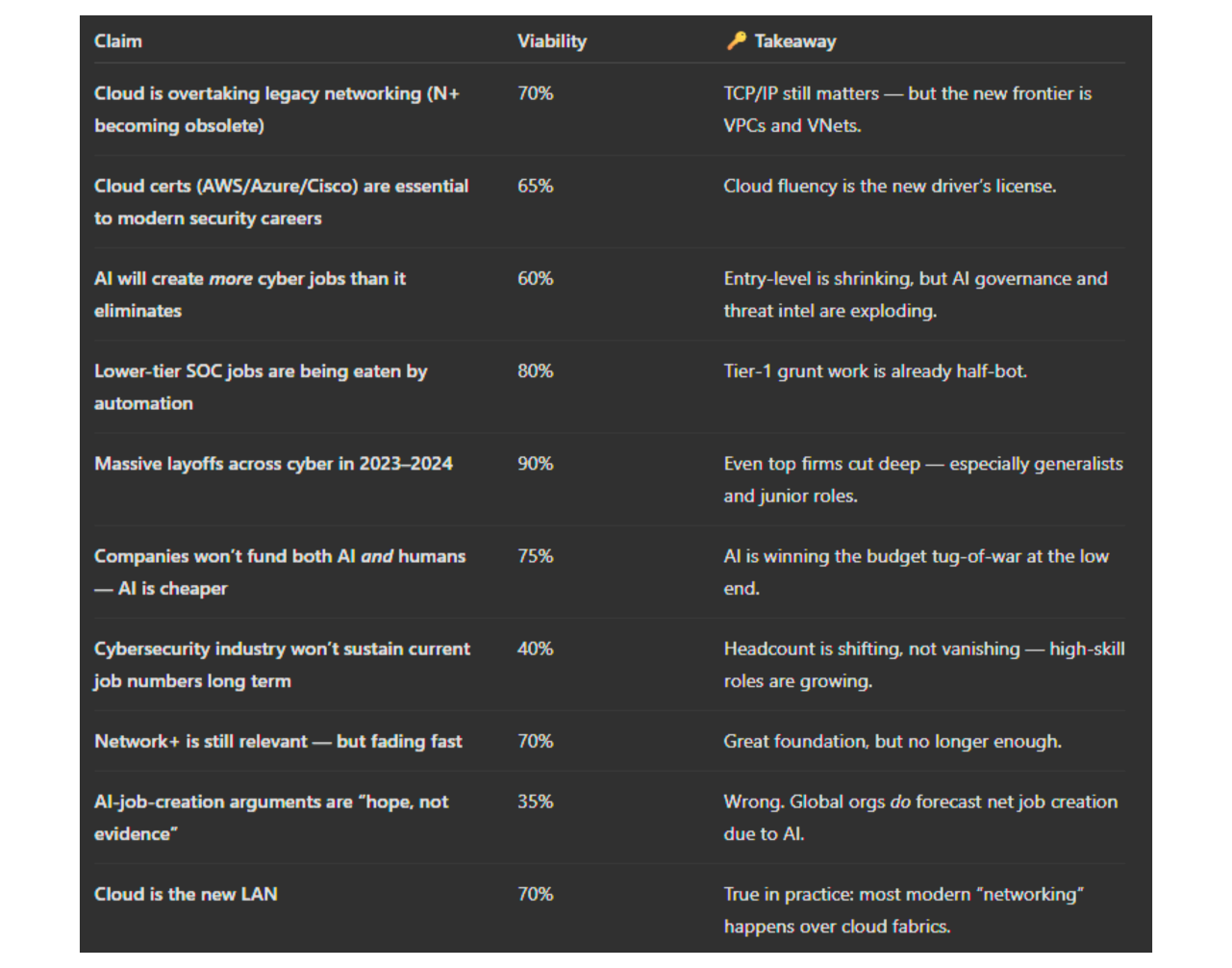AI Is Not Killing Cybersecurity Jobs — It’s Raising the Bar
The most skilled professionals will ride out the job market in the long-term.
Written by Evan Lutz | 4 min • July 21, 2025

AI Is Not Killing Cybersecurity Jobs — It’s Raising the Bar
The most skilled professionals will ride out the job market in the long-term.
Written by Evan Lutz | 4 min • July 21, 2025

Recently, I entered a debate on X with a colleague who insisted that the cybersecurity industry is not going to sustain vast numbers of jobs as it has in the past, because of artificial intelligence entering the scene.
I, however, argued that AI is going to make more jobs in cybersecurity than it takes away.
In the face of two competing visions for the future, I wanted to figure out who was right. And I was willing to be wrong. So, I asked my AI assistant to audit both arguments using industry reports, labor data, and AI trend forecasts from 2024 and 2025. Each claim was also evaluated for its viability based on the best available evidence.
Here are the results, with a viability percentage that represents directional probability:
 Sources: gartner.com, isc2.org, cyberseek.org, bls.gov, techcrunch.com, aws.amazon.com, secureworld.io
Sources: gartner.com, isc2.org, cyberseek.org, bls.gov, techcrunch.com, aws.amazon.com, secureworld.io
In the short-term, my colleague was right. The bottom of the market is getting hollowed out. Helpdesk roles, Tier-1 SOC analysts, and generic tech support are increasingly handled by AI-driven playbooks and automated tools.
In the long-term, I’m right. The cybersecurity landscape is expanding in complexity. We need defenders who can secure cloud-native infrastructure, harden AI models, validate outputs, and investigate machine-augmented threats. That work doesn’t disappear — it evolves.
Remember the good old days? Like in 2022, when anyone could get a few certs and land a $60k remote job in 6 weeks? Those days are gone. Now the market is changing, and I’m changing with it.
This isn’t job loss. It’s job elevation. The entry-level bar has moved up.
The new frontline doesn’t start with resetting passwords — it starts with reviewing Splunk dashboards, tuning cloud policies, scripting enrichments, and understanding what “normal” looks like in a hybrid SIEM.
The market isn’t asking if you’ve “seen the cloud” — it’s assuming you live in it. IAM misconfigs, privilege drift, and log visibility across Azure/AWS are now starter tasks. If you can't audit policies or spot misused roles, you're not ready.
Here are a few other things to be prepared for:
Here’s the bottom line. Yes, the lower-tier grunt work is disappearing. No, cybersecurity isn’t dying. It’s leveling up. The winners will be those who work with AI, not those who are replaced by it.
If you’re preparing for a world that no longer exists, AI will eat your job. But if you're building for where cyber is headed — cloud-native, automation-aware, and threat-smart — you'll be the one feeding AI its inputs.
The defenders are not being replaced. They’re being promoted.